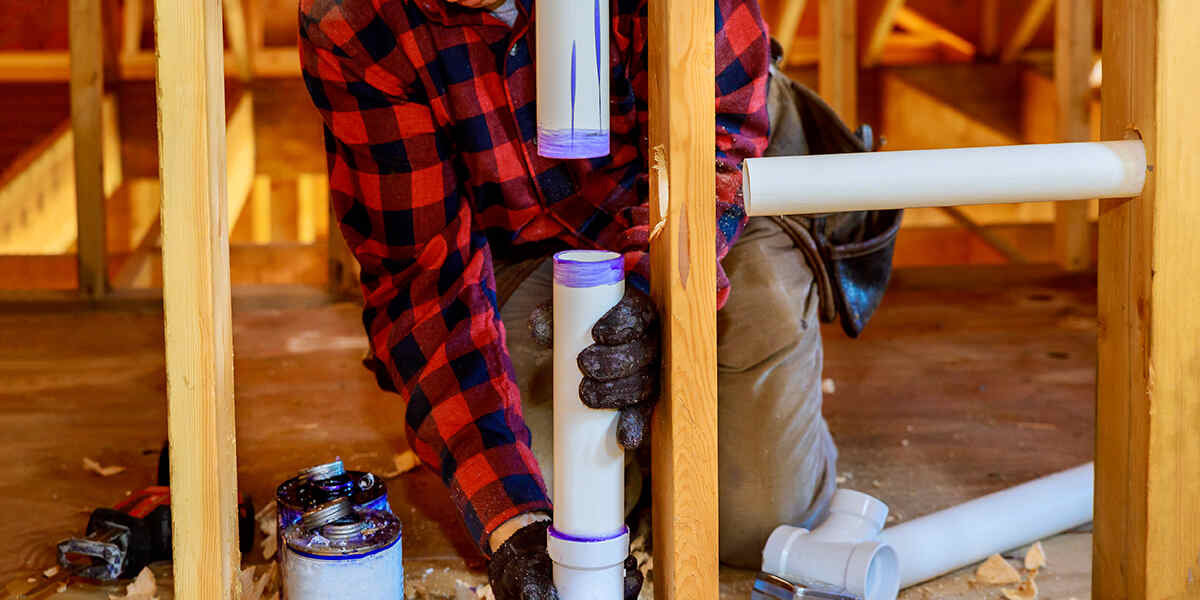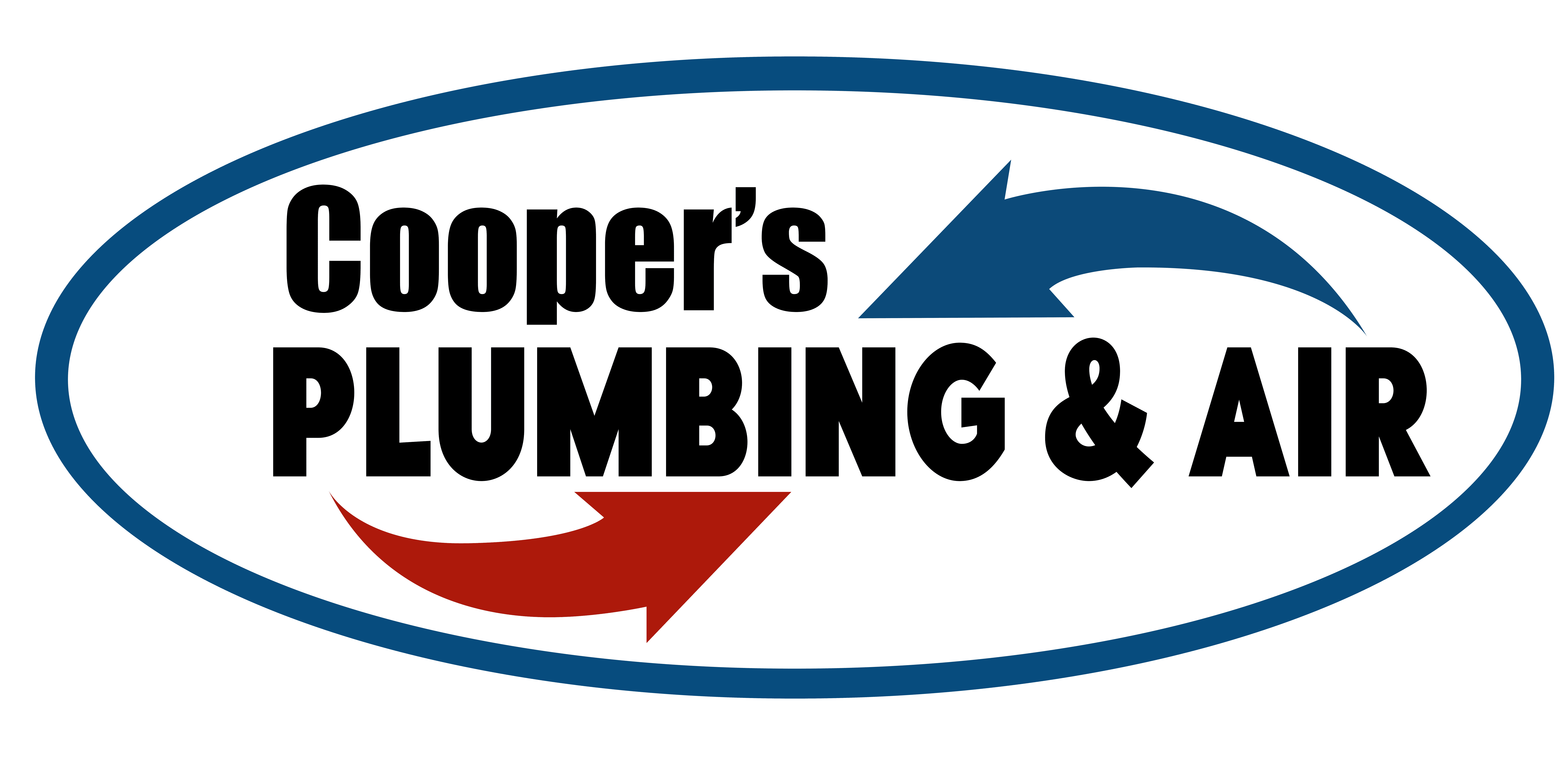
Repiping a house is a significant investment, but recognizing the warning signs of plumbing trouble early can save you from costly repairs, water damage, and health hazards.
Cooper’s Plumbing & Air shares the following signs of wear and tear or damage that can lead to issues that call for piping renovation or replacement. As the local leader in plumbing in Bainbridge, GA, we want every client to enjoy a safe and efficient water supply and sewer system.
Here are eight key signs it might be time to repipe your home.
1. Frequent Leaks
An occasional plumbing leak isn’t unusual. However, frequent leaks suggest more involved problems. As pipes age, they can develop tiny pinholes or larger breaks due to thinning walls and corrosion.
When left unaddressed, leaks can increase in number and size and lead directly to water damage, mold growth, and structural issues. Instead of patching multiple leaks in a system that is deteriorating, consider repiping a house to resolve the root cause.
2. Corrosion on Pipes
Corrosion is a common problem in older homes with galvanized steel or iron pipes. Over time, these materials develop rust, flaking, or a chalky residue which weakens their structure.
Corrosion compromises pipe strength and can contaminate your water supply after it enters your system. If you or your plumber notice external signs of corrosion during an inspection or routine maintenance, consider repiping as the most effective permanent solution.
3. Low Water Pressure
Mineral deposits, sediment buildup, and corrosion inside pipes can restrict water flow, leading to weak or inconsistent water pressure. Just cleaning the pipes may not be enough to resolve the issue in older plumbing systems. Repiping is a permanent solution that ensures proper water flow and enhances your faucets, showers, and appliances.
4. Discolored Water
Are you noticing brown, red, or yellowish water flowing from your taps? Discolored water is a common indication of rusting inside your pipes.
Dirty water is more than just unpleasant — it can pose health hazards if consumed. This issue is more common in older, deteriorating plumbing systems. Replacing aging pipes eliminates existing contaminants, delivering clean, safe water for your household.
5. Noisy Pipes
Banging, clanging, or rattling noises coming from your pipes are another typical sign of trouble. These sounds, commonly known as “water hammer,” occur when the pipes are loose, poorly secured, or damaged.
Noisy pipes are more than an annoyance. They are a sure sign that your plumbing system is struggling to handle changes in water pressure.
6. Aging Pipes
Plumbing materials have varying lifespans. Copper pipes last up to 50 to 70 years, while galvanized steel pipes can last up to 50 years. However, factors like water quality, maintenance, and usage all affect plumbing resilience and longevity.
If your home’s plumbing is nearing or has run past its expected lifespan, aging pipes drive up the risk of future leaks and failures. Act proactively to replace old pipes to prevent leaks, bursts, and water damage for years to come.
7. Rising Water Bills
An unexpected increase in your water bill without a clear explanation usually points to hidden leaks or inefficient plumbing. As pipes age and degrade, developing leaks can waste significant amounts of water. Even small, undetected leaks continuously add to the loss and increase the risk of structure damage and mold growth.
8. Water That Smells or Tastes Bad
Corroded pipes often cause water to have a metallic or sulfuric taste or smell. Over time, flakes of metal can mix with your water, and unpleasant odors and flavors can be the first obvious sign of contamination.
Why Repiping a House Is Worth the Investment
Professional plumbers use modern materials like PEX and copper when repiping a house. Any plumber’s guide to maintenance directs the use of materials that are durable, resist corrosion, and improve water flow.
While repiping a house often feels like an intimidating task, it’s an investment that offers long-term benefits:
-
Improved water quality. Eliminating rust, contaminants, and buildup in pipes provides cleaner, safer water.
-
Lower maintenance costs. New plumbing reduces the likelihood of costly leaks, clogs, and other recurring issues.
-
Better water pressure. Enjoy consistent and strong water flow in every faucet and fixture throughout your house.
-
Increased home value. Prospective buyers look for homes with modern plumbing systems and pay a premium for the benefit.
Repiping FAQs
These are some of the questions our customers ask about repiping a house in Bainbridge.
How Does Repiping Differ From Pipe Repair?
Repiping differs from pipe repair in that it involves replacing all or most of the plumbing pipes in your home, whereas pipe repair focuses on fixing isolated issues like leaks or clogs. Repiping is a long-term solution for outdated systems or those failing beyond isolated problems.
How Do I Know If I Have Galvanized Steel Pipes in My Home?
You can determine whether you have galvanized steel pipes in your home if you see they are gray or metallic, especially if you see visible rusting or flaking on their exterior surfaces. If your plumbing system dates to before the 1960s, it very likely has galvanized steel plumbing.
Are There Alternatives to a Full Repiping?
In some situations, there are alternatives to full repiping. Partial repiping or relining pipes are sometimes useful for localized problems, but those fixes do not address larger systemic issues like whole-house corrosion or outdated pipes.
Trust Cooper’s Plumbing & Air for Your Repiping Needs
If you’ve noticed any of the signs we’ve discussed above, it’s time to call our professionals for a thorough plumbing inspection. Cooper’s Plumbing & Air has provided expert repiping service in Bainbridge and the surrounding areas for over 20 years. Rely on us for responsive, respectful, and reliable service to keep your home’s plumbing in top shape.
Contact Cooper’s Plumbing & Air today to learn more about repiping a house and to schedule an inspection. Call us at (866) 464-7132 to experience the difference of working with a locally owned, family-operated company that truly cares about your comfort and safety.
